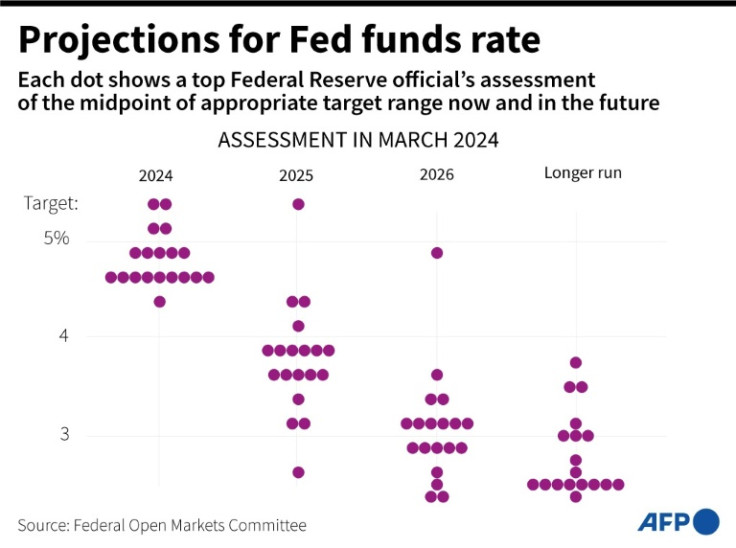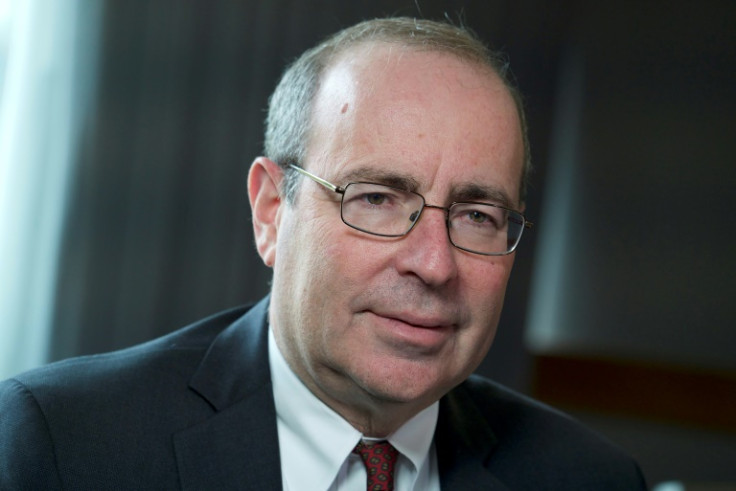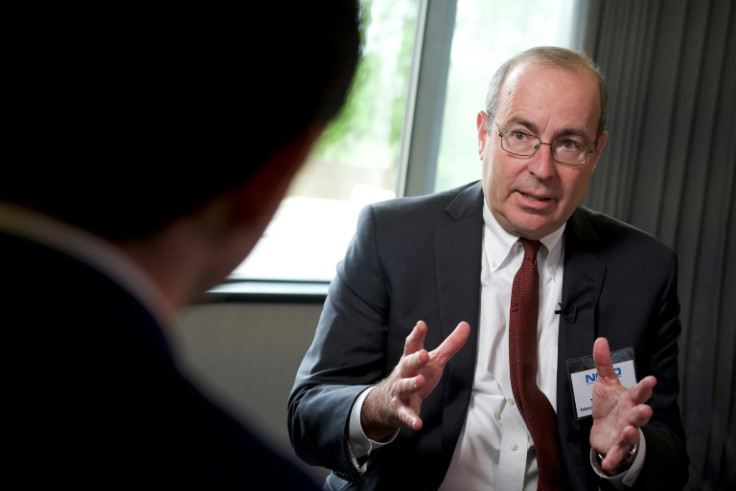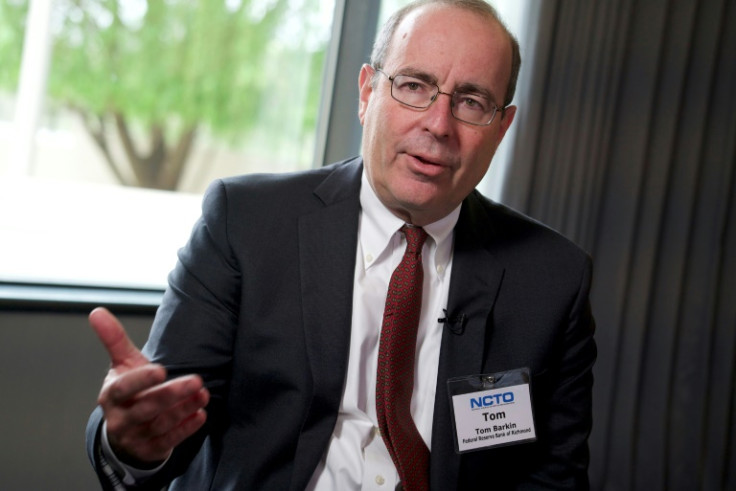US Fed's Barkin Says Recent Inflation Data 'Not Supportive' Of Case For Rate Cuts

The recent uptick in US inflation has weakened the case for the Federal Reserve to start cutting interest rates, a senior Fed policymaker told AFP on Thursday.
The Fed has lifted its benchmark lending rate to a 23-year high of between 5.25 percent and 5.50 percent as it looks to bring inflation back down to its long-term target of two percent with as little damage to the labor market as possible.
While US consumer inflation has slowed significantly since peaking in 2022, it has crept higher in recent months, keeping markets guessing about when the Fed will implement its first rate cut, even as other indicators of US economic strength have remained resilient.
"When we gain greater confidence that inflation is headed toward our target, then it'll be appropriate to ask whether it's not time to recalibrate the setting of monetary policy," Richmond Fed president Tom Barkin said in an interview.
"But you've got to start with when does inflation start to make that case?" he added. "And unfortunately, the last three months have not been supportive of that case. But we'll see."
Barkin is one of the 12 members of the Fed's rate-setting Federal Open Market Committee (FOMC) with a vote on setting US interest rates this year, and his words are closely scrutinized by traders looking to predict the direction of travel of US monetary policy.
"I think, on the inflation side, we spent the last seven months of last year celebrating two percent inflation -- and we were right to do that," he said.
"And what's happened over the last three months is we've seen elevated inflation, not nearly at the levels that it was at a year or two ago, but higher than our target," he added.
At its most recent meeting in March, FOMC policy makers penciled in three rate cuts in 2024.
But since then, fresh data has fueled concerns that inflation is accelerating, causing traders to dial back and delay their rate cut forecasts.
"The markets, for reasons that I can understand, are very focused on 'Is it zero or one or two or three?' or whatever the number is," he said.
"I'm more focused on, is inflation coming under control? And are rates having the impact you would hope that they would have on the economy in a way that brings inflation under control?" he added.
At the March meeting, FOMC members also predicted that inflation wouldn't return to the Fed's two percent target before 2026, and that the interest rate would settle slightly higher over the long run than previously thought.
"It wouldn't surprise me if it took a while," Barkin said when asked how quickly he thought inflation would settle at two percent.
Futures traders currently see a high probability that the Fed will make its first interest rate cut in September this year, according to data from the financial services firm CME Group.
Such a move would place the first cut just before November's presidential election, thrusting the independent US central bank into the middle of a fractious fight between President Joe Biden and his likely opponent, former president Donald Trump.
The former president has repeatedly criticized the Fed, most recently on Wednesday, when he suggested on social media that it "will never be able to credibly lower interest rates, because they want to protect the worst President in the history of the United States!"
Barkin would not be drawn on the timing of the first interest rate cut, and said he wanted the Fed to remain independent and focused on its dual mandate.
"We value our independence very much," he said.
"History has shown, and academic studies confirm, that the best thing for an economy is an independent central bank," he continued.
"The number one way to keep your independence is to do a good job at your job," he added. "And our job is stable prices and maximum employment."



© Copyright AFP 2024. All rights reserved.











